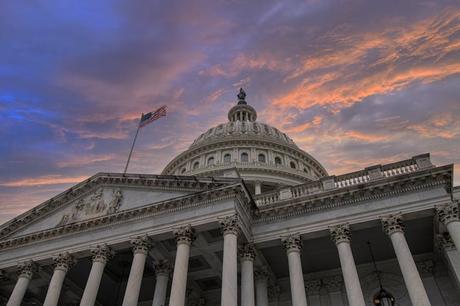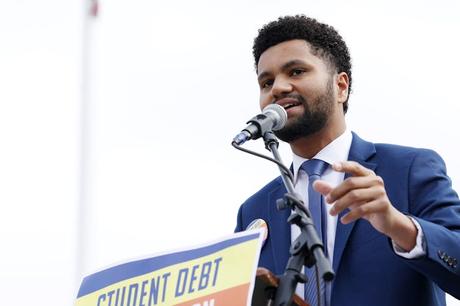It's not just presidential candidates who are old.
Based on my own data, nearly 20% of House and Senate members are 70 or older, compared with about 6% who are under 40.

Voters in North Dakota recently approved a ballot initiative that would place an upper age limit on candidates for Congress from that state. If it survives likely court challenges, the law would bar anyone 81 or older from serving in Congress from North Dakota. The motivation behind such a measure: to correct that major generational imbalance in Congress.
With a number of high-profile American politicians approaching or exceeding 80, including both parties' presumed presidential nominees, it's no wonder measures like North Dakota's are getting attention.
But what exactly explains Congress' advanced age? And what, if anything, could help even things out between the generations?
Some core causes
Congress' advanced age has many causes, and some of them are unavoidable.
First, if it feels as though Congress just keeps getting older over time, it's because Americans are, too. According to historical data on members of Congress, the average House member's age is up 10% since 1960 - 58, up from 52. A similar increase happened in the Senate, with the average age 63, up from 57.
But the average American's life expectancy - 79, up from 70 - is up by even more during this time, around 13%. And according to the U.S. Census Bureau, the median American age is up by even more during that time, over 30%, from 30 up to 39.
While North Dakota is proposing an age ceiling of sorts, the U.S. Constitution already enforces an age floor. Members of the House must be at least 25 years old by the time they take office; senators must be 30. So if the average congressional ages cited earlier seem high, it's partly thanks to some artificial inflation from age floors.
Young candidates are hard to find
But natural trends and constitutional requirements don't fully explain why younger generations are so underrepresented in Congress.
One big additional reason is that younger potential candidates for Congress face a steeper climb and must make bigger sacrifices than older candidates do.
For example, even if they are interested in running for Congress, Americans in their 20s and 30s haven't had as much opportunity to establish themselves in secure careers as older generations have. This means less access to the political networks and connections that political science research says are crucial to success in congressional campaigns.
More importantly, this means less access to money and potential donors. When I spoke last year with U.S. Rep. Maxwell Frost, a Florida Democrat - the first Gen Z member of Congress - he laid out why his success was the exception and not the rule.
"It's really hard," Frost told me. "The system is not created for young people to be running for office." Just being a candidate, he said, means "a year without salary. If you're already rich, that's not a big deal; you're fine, you have savings. It makes it so young people can't run."
Young potential candidates also face a deficit of time in addition to money. Compared with later years, your 20s and 30s usually contain more major life events and changes, such as career transitions, geographic mobility and starting a family. As a result, politics take up less space in young people's lives, compared with older generations with more time, personal stability and career and financial security.

Age has advantages
Meanwhile, older Americans with an interest in running for Congress enjoy a few key electoral advantages.
Advanced age brings with it longer careers - political or otherwise - that voters often interpret as proven experience, or longevity in jobs that may well translate into effectiveness as a member of Congress. In other words, older generations have had more time to prove their quality in the eyes of the voters. Younger candidates might seem unseasoned by comparison.
Political science also has established the difficulty of unseating incumbents in Congress. Nearly all members of Congress who run for reelection end up winning. The so-called "incumbency advantage" helps all sitting members of Congress, not just older members. But it limits the number of open seats that are most likely to bring younger generations into Congress.
Are there solutions?
Frost and others emphasize the importance of generational balance in Congress for both representation and lawmaking.
The good news is that any progress made in this area will pay dividends down the road. Political science findings indicate that seeing people who are "like us" in Congress or other offices helps us to feel properly represented and to view our political institutions as more legitimate. The success of younger candidates encourages other young people to make the leap themselves, kicking off a virtuous cycle of representation.
Although some of the factors that favor older candidates are unavoidable, there are things that could be done to encourage young people to run for office. In our conversation, Frost suggested allowing candidates to draw more generous stipends from their own campaign funds to lessen the burden on younger, less financially viable candidates. And, of course, age limits like North Dakota's could potentially help make room for younger generations to run.

Charlie Hunt, Assistant Professor of Political Science, Boise State University
This article is republished from The Conversation under a Creative Commons license. Read the original article.

